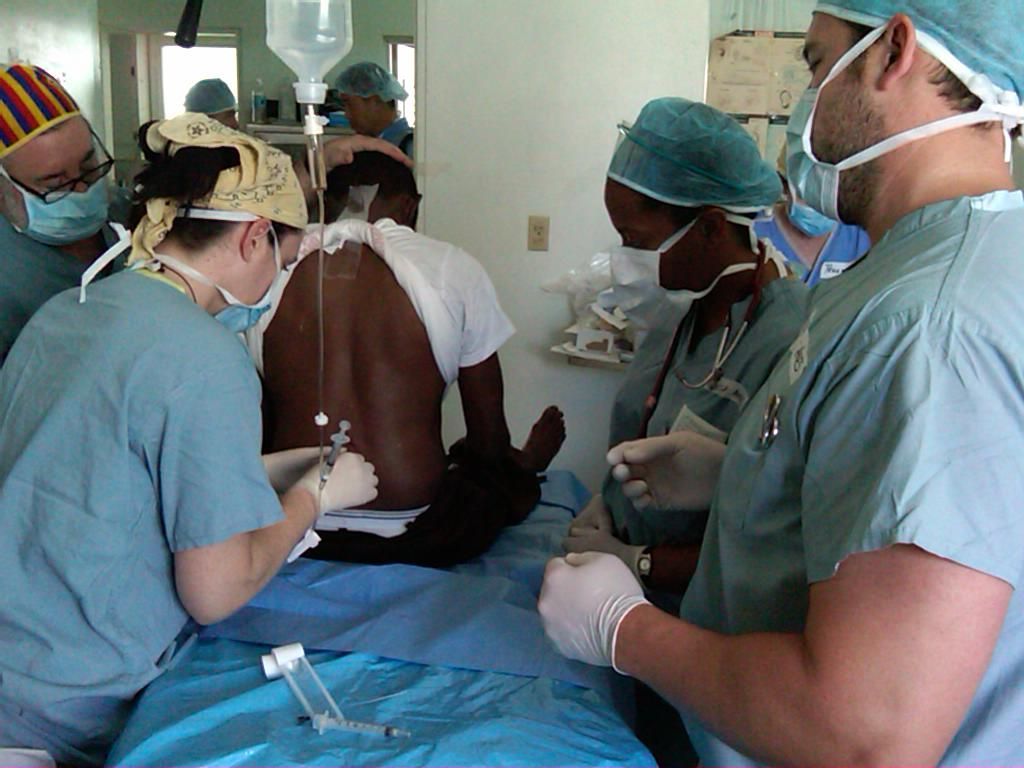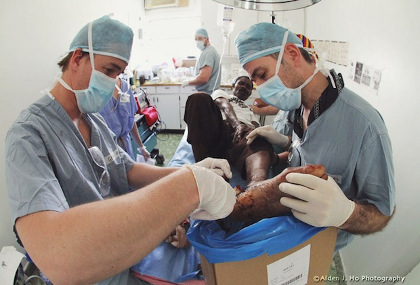Saving Lives After The Haiti Earthquake
 In 2010, I served with a group of 20 volunteer health care providers from Rush University for the earthquake recovery effort in Haiti.
In 2010, I served with a group of 20 volunteer health care providers from Rush University for the earthquake recovery effort in Haiti.
We put in many long days. In fact, it was often hard to tell when one day ended and another began. But we saved a lot of lives. Our team of anesthesiologists worked closely with some orthopedic surgeons and other medical staff both from Rush University (where I completed my residency) and from other institutions around the world. We were all thrilled for the opportunity to be there.
As you can imagine, the working conditions weren’t exactly favorable. We were exhausted, dirty, and struggled to communicate with the people. We were also painfully ill-equipped for the task and the equipment we did have was unreliable.
It was not uncommon to run out of wall oxygen or experience a total power outage during a procedure. Nevertheless, while I was helping with a particularly difficult surgical procedure, I rediscovered my long dormant creativity and resourcefulness to function effectively under adverse conditions.
We commonly faced bone fractures, crush injuries, and various skin wounds. Aside from the earthquake-related injuries, we also performed a few emergency surgeries and C-sections. One was on a woman who experienced premature contractions. As soon as the baby was born, we needed to resuscitate the child. Later, we discovered that the reason she went into premature labor was because she had spent the previous 12 days using her bare hands to dig out her husband and three children who were buried under a collapsed house. She stopped hearing the children’s cries after a few days, but she kept digging. She eventually reached her family, but it was too late.
This is only one example of the tragedies and broken hearts suffered by the people as they learned the fate of their loved ones. Meanwhile, the numerous health care volunteers endeavored to preserve lives and heal those who survived the devastation.
 Someone once said that the greatest gift of life is life itself. Therefore, the next greatest gift of life is our ability to choose our life’s path. I am a physician. I am educated and trained to serve others because of the many opportunities afforded me in my life. Many Haitians can enjoy the gift of life itself, but few get to choose their life’s direction. After an earthquake of that magnitude and the losses they suffered, their choices become even more limited.
Someone once said that the greatest gift of life is life itself. Therefore, the next greatest gift of life is our ability to choose our life’s path. I am a physician. I am educated and trained to serve others because of the many opportunities afforded me in my life. Many Haitians can enjoy the gift of life itself, but few get to choose their life’s direction. After an earthquake of that magnitude and the losses they suffered, their choices become even more limited.
Looking back, I recall working side-by-side with medical professionals from various nationalities, social classes, and educational backgrounds. But our differences were diminished by the fact that we worked together among people who endured incomprehensible suffering and personal tragedies. Altogether, the work was tiring, challenging, and emotionally taxing. Still, the most difficult part was having to leave knowing what we were leaving behind. I can only hope that many more people will benefit from the seemingly small number of people that we cared for.
